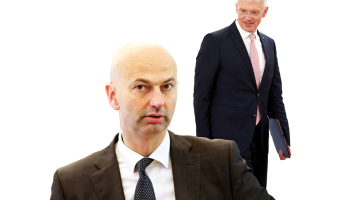
Foto: Rūta Kalmuka, F64
Income inequality in Latvia, as measured by the Gini coefficient, is very high by EU standards (though not as high as in e.g. the US) so I found it very refreshing that debate around this topic was a quite hot issue at the end of 2012, not least inspired by this article.
The EU Commission is not too happy about recent Latvian policy in this area - here is an excerpt from p. 10 of its recent EU BoP [Balance of Payments] Assistance to Latvia - Second Review under Post-Programme Surveillance (my italics):
As regards reforms of the social assistance system, the government has decided to decentralise the financing of the Guaranteed Minimum Income benefit (GMI) and to lower its minimum amount. These steps go against the relevant CSR [Country Specific Recommendations] and SMoU [Supplementary Memorandum of Understanding] conditionality. The decisions were made without consulting the Commission, as stipulated in the SMoU. There was no substantial prior analysis of the impact on poverty and incentives to work, even though one relevant analysis is in the pipeline (the World Bank study Latvia: Who is Unemployed, Inactive or Needy?; results to be ready by early 2013).














